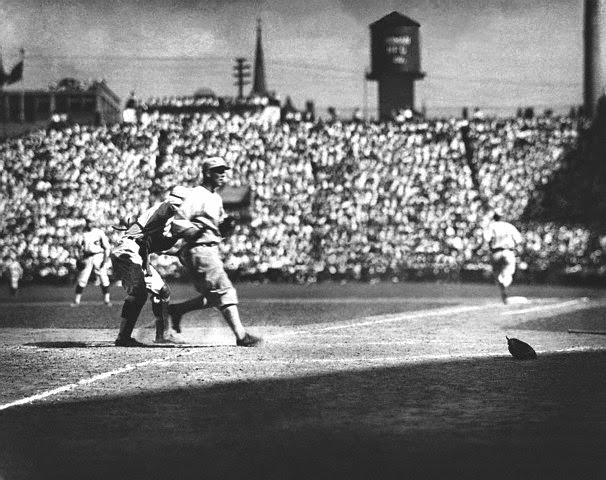 |
| "Shoeless Joe" Jackson in 1919 World Series |
I guess everyone loves a redemption story. In this case, Ray Kinsella (Costner) has a dream in which he is compelled to build a baseball field for the infamous Chicago "Black Sox" who threw the 1919 World Series. Of course, everyone thinks Kinsella is crazy but his wife sticks by him as he plows over the corn field and starts building his ball park, all because the voice in his head told him, "if you build it, they will come." Sure enough they do, if only in his fevered imagination with the White Sox given a chance to win back the series from the Cincinnati Reds.
The movie was based on a novel by W.P. Kinsella a few years earlier, who no doubt had read Eliot Asinof's classic account, Eight Men Out, which told the history of the World Series scandal. But neither Kinsella nor the filmmakers deal much in the particulars of the case, but rather some cornball metaphysical tale in which these guys get the chance to replay the World Series.
The White Sox were a sure bet to win the series, which is why the Chicago mob decided to get to the players, and swing the series to the Cincinnati Reds with the much higher betting odds. Asinof illustrates that it didn't take much to throw a game. A missed catch here, a miffed swing there made all the difference in the world, and the mob and players involved considered the slights undetectable. However, Ring Lardner, who covered the Sox, smelled something was amiss. "The Fix" was eventually ratted out. Eight players stood accused of throwing the series, including "Shoeless Joe" Jackson, who many felt wasn't involved. He became the central player in Kinsella's novel, and played by Ray Liotta in the movie.
All the players involved were banned from baseball for life, but that didn't mean they couldn't redeem themselves after death. The quasi-religious theme sat better with the audience than did John Sayles' independent movie, Eight Men Out, the year before. This film seems to be mostly remembered by baseball fans, despite a great cast that included John Cusack, Christopher Lloyd and David Strathairn.

Comments
Post a Comment